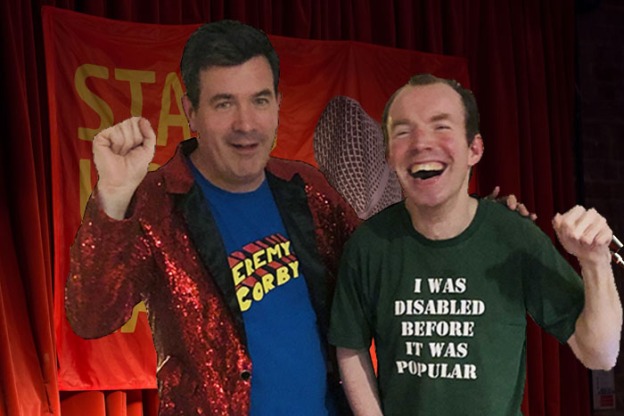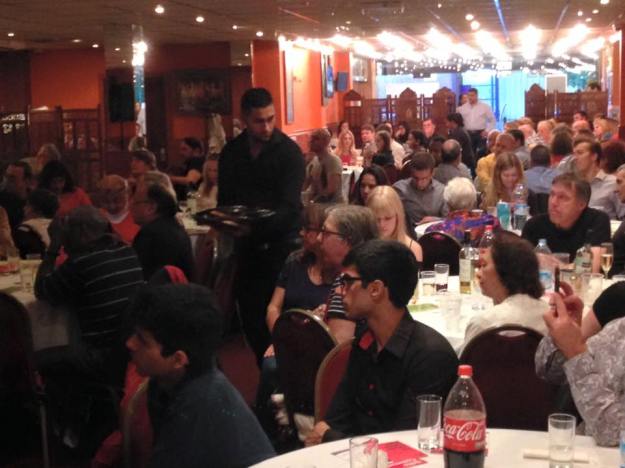Living with no job security, hardly any safety net, no savings for the future, worries about healthcare and monthly struggles with bills is tough.
But feeling there is no chance of changing this situation and that politics has nothing to offer makes things even more depressing.
This is the sad reality for millions of people in this country. There may be some people who vote in elections, but putting a cross in a box every few years is hardly participating in politics.
Our adversarial political system favours political parties, so it is only by joining a political party that anyone can really make a difference.
And the stark reality is that only 1% of the UK population have signed up with a party.
It should be a requirement of all the major political parties in this country that they reach out to as many people as possible and increase the level of participation. That this hasn’t happened is down to a collective failure to open up politics to more people.
It does not fill me with joy that the Conservative Party membership is under 125,000. This means that fewer than 0.25% of the population participate in shaping the governing party of this country. This leads to less accountability and less opportunity for people to influence local and national policy.
I could just point the finger at the Conservative Party and say that their situation is deplorable. But I’m not enthralled by the level of participation in the Labour Party either.
More than just the leader
A recent smear campaign by hostile media has suggested that Labour has lost over 100,000 members in the past year or so (so down to about 500,000). It has been spun as an indication that Jeremy Corbyn’s popularity has waned. This has been rebuffed by party officials, but the question is why should membership of a party appear as an endorsement of the leader?
Are members of a political party just fans of the leadership? If this is all party membership is about, I totally understand why people are unwilling to pay a subscription to join. It’s a lot of money to pay for just that.
I think this illustrates why so few people have joined political parties.
For some reason, the parties can’t think up ways to encourage people to join them.
As someone who has met thousands of members across the country since I started Stand up for Labour, I have ideas that would not cost the party much (if any) and would:
- lead to a massive influx of members
- improve democratic participation
- build stronger communities
- improve people’s mental and physical health
Attraction of members
The first thing that strikes me about the Labour Party is the number of decent, warm and friendly people who are members.
Labour members are incredibly attractive people. I see this at every Stand up for Labour show. These are people who are good to be around: friendly, decent, considerate of others.
And there are real heroes out there who make the party an attractive place to be.
The problem with the Labour Party – as it is run – is these kind, warm people are really only given business meetings in which to express themselves.
Business meetings are not only terribly formal and antiquated, but they also promote conflict as they are full of votes on this and that. Anyone who is introduced to the Labour Party by a business meeting is likely to see a room full of formal – sometimes pompous sounding – people who tend to argue and bicker about anything and everything.
I’m not suggesting that we don’t have business meetings as these are vital to party democracy, but they shouldn’t be anything like the be-all and end-all of local party activity.
Local parties offer some alternatives to business meetings. These are usually fundraisers such as dinners, or there may be a social every few months (like a barbecue in the summer). These events are run by volunteers who often have no experience of running events and are not seen as a priority by the party locally or nationally.
These social events should assume far more importance and there should be more of them. Through social events, people will see the real qualities of Labour members and, if these are well run, people will want to join the party to be part of their local Labour fellowship. For these to work, local CLPs need support from people who have experience of running successful social events.

Spreading the net
The Labour Party has a fantastic network. This has a lot to offer but we are totally neglecting it.
As an example of this, I had a summer holiday booked in Suffolk a few years ago and I had no idea what activities I could offer my young daughter. As I had put on a Stand up for Labour show in Lowestoft earlier that year, I wrote to the candidate there and asked if he had any advice for where to go. What I received was local knowledge that would be the envy of any holidaymaker: the best fish and chip shops, the best local excursions and the best beach.
If Labour were to create a mechanism for members to communicate across regions and share information about all areas of life, this resource would be in heavy demand. To further illustrate this, there would be opportunities for members to list recommended local plumbers, mechanics, etc (some of whom may be members themselves). These would, in a sense, be ‘Labour approved’. And this information would only be known to members.
There could even be a ‘Labour Airbnb’, where Labour members could be assured they were staying with like-minded people and those hosting others would be confident that they would get on!
This network of Labour members could be bolstered further by having ‘Labour Hangouts’ in every constituency (or branch).
These would be cafes, pubs or restaurants where local Labour members were encouraged to spend time. If a list of these were available to Labour members then they would feel confident about where to go when they were in another town or city. They would also fill a hole in our communities, where many people feel isolated and stay indoors rather than go out. We would also build a rapport with local businesses this way.
Creating a booming network creates endless opportunities. Sports and recreational leagues could be set up: 5-a-side football, darts, snooker, even a fundraising marathon set up by the Labour Party.

Exclusive online content
Labour’s online presence could benefit from reinforcing the positive image of the Labour community. This could include features on real Labour heroes in different communities, biographies of remarkable members and Labour figures from the past. This would be a relentless output of positive content about what the Labour Party has achieved and the fabulous people who shaped the party through history (like ‘Labour Heroes’). These videos should only be made available to Labour members (I support Fulham Football Club and I can only watch highlights of their matches and features if I pay a membership fee).
With a focus on the positive aspects of the party and promoting the Labour Party network, the Labour Party will see membership soar. And membership figures will not fluctuate according to who is the leader – or be open to that interpretation. People will join Labour because it is the best social club to be in and because we have such brilliant people.
A more harmonious party structure
None of this can be achieved by the grassroots alone. The branches and CLPs will need support through an improved party machine and there will need to be more communication with the central party.
A revolutionised Labour Party will bring real benefits not just to Labour’s chances of winning future elections, but will also prompt the other political parties to emulate us. We will then achieve a far healthier democracy and society.











